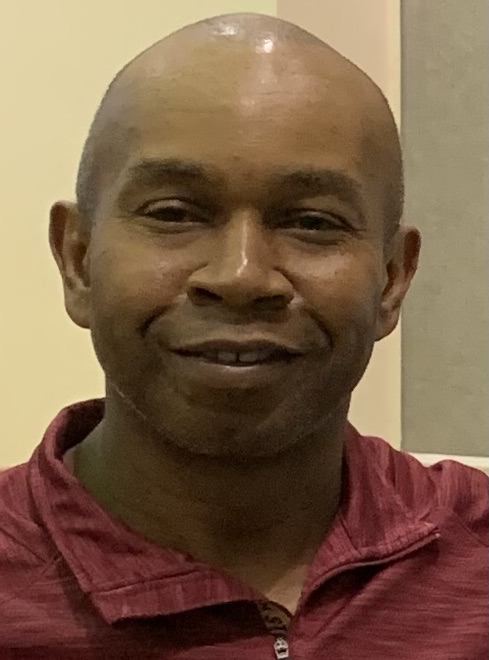Wade Douglas, a surgical oncologist and educator, has spent more than two decades saving lives, mentoring future surgeons and advancing cancer research. As a professor and program director at Tallahassee Memorial HealthCare, he navigates the high-stakes world of surgery while shaping the next generation of doctors. A Florida native, his career shows a dedication, driven by early experiences and a commitment, to fighting cancer.
“When I was a medical student, I met my first patient with cancer,” Douglas says. “I witnessed how cancer devastated the patient’s life and their family. That moment stayed with me and shaped my focus on fighting this disease.”
Born and raised in Florida, Douglas began his academic journey at Florida A&M University, where he studied biology. He earned his medical degree from the University of Florida College of Medicine, followed by advanced training at Roswell Park Cancer Institute. There, he completed fellowships in head and neck surgery, surgical oncology and cellular biology, while conducting research on cancer biology and immunotherapy. These experiences laid the groundwork for a career blending clinical care and education.
His professional path took him to Marshall University’s Joan C. Edwards School of Medicine, where he taught and led as an assistant and associate professor. By 2012, he was directing the general surgery residency program. In 2014, he returned to Florida, where he has built a legacy as an educator, clinician and researcher.
Douglas’s story is one of quiet resolve. From his early days as a curious student to his current role leading surgical education, he has stayed true to a core principle: service. Whether operating on a patient, teaching a resident or publishing research, he believes that applying knowledge and effort with care can change lives.
A Calling Sparked by Mentorship
Wade Douglas’ path to medicine began with a mentor who opened his eyes to the profession. Dr. Samuel Hunter, a physician he shadowed as a young student, showed him what it meant to be a doctor. “Dr. Hunter gave me an accurate feel for the profession,” Douglas says. “He inspired me to pursue this career with purpose.”
It was at the University of Florida College of Medicine, during his medical school years, that a single encounter reshaped Douglas´ future. Meeting a patient battling cancer, he saw the disease’s devastating toll, not just on the individual, but on their loved ones. The experience was a turning point, steering him toward surgical oncology, a field where he could confront cancer head-on.
His training at Roswell Park Cancer Institute gave him the tools to do just that. Through fellowships in head and neck surgery and surgical oncology, he mastered complex procedures. His work in cellular biology deepened his understanding of how cancer functions at a molecular level. He also explored immunotherapy, a promising frontier in cancer treatment. These years sharpened his skills as a clinician and researcher, preparing him for the challenges of his career.
The road to becoming a surgeon was rigorous, demanding both intellectual and emotional resilience. Douglas embraced the challenge, driven by the memory of that first cancer patient and the mentor who had set him on this path. His early experiences taught him that medicine was not just about science; it was about people.
Lessons from the Army
Douglas served as a medic in the U.S. Army, an experience that shaped his approach to high-pressure situations. One moment from those days stands out vividly. During a training exercise, a fellow soldier was pinned in a Humvee that had slid into a ravine. Douglas rappelled down, freed the soldier, stabilized him and ensured his evacuation to a hospital. The soldier made a full recovery, and Douglas was awarded an Army Achievement Medal that same day.
Another defining achievement came when he earned the Expert Field Medical Badge, a grueling honor that tested his skills, endurance and determination. “Obtaining that badge provided me with confidence and self-belief,” he says. “It showed me I could push through challenges and come out stronger.”
His time in the Army instilled a sense of discipline and duty that he carried into medicine. As a medic, he learned to think quickly and act decisively, skills that proved invaluable in the operating room. The Army also reinforced his commitment to service, a value that has guided his career. “I enjoy being of service,” he says, “whether in the medical field or in the military.”
These early lessons shaped his approach as he transitioned to academia. When he joined Marshall University in 2005, he brought that same focus to teaching and patient care. His ability to remain steady in a crisis, honed in the Army, served him well as he took on leadership roles.
Building a Residency Program
At Marshall University, Wade Douglas built a strong foundation as an educator and leader. Starting as an assistant professor in 2005, he rose to associate professor by 2009. From 2012 to 2014, he served as program director of the general surgery residency, guiding young surgeons through their training. His leadership focused on fostering technical skill and patient-centered care, ensuring residents were prepared for the challenges of surgery.
Now at Tallahassee Memorial HealthCare, Douglas continues to mentor trainees with a hands-on approach. He emphasizes the importance of seeing patients as individuals, not just cases. His teaching blends practical skills with lessons in resilience, drawing on his own experiences as a surgeon and former Army medic.
Douglas sees education as a way to extend his impact. By training residents, he shapes not just their careers but the lives of the patients they will serve. His work in the classroom and operating room is driven by a belief that excellence in surgery requires both precision and humanity.
Wade Douglas Pushes Cancer Research Forward
Wade Douglas is a recognized voice in surgical oncology, with a publication record spanning over three dozen peer-reviewed articles. His scholarly work focuses on cancer disparities, tumor resistance and diversity in medical training, combining clinical insight with research acumen. He has explored pancreatic cancer biobanking, head and neck malignancies and the role of inflammation in cancer treatment outcomes, earning wide respect and citations in the oncology community.
Among his recent publications are “Leveraging Real-World Data in Pancreatic Cancer Outcomes” (2024, Frontiers in Oncology), “Diversity and Inclusion in Surgical Education” (2023, Journal of Surgical Education) and “The Florida Pancreas Collaborative Next-Generation Biobank” (2021, Cancer). These works highlight his commitment to addressing both scientific and social challenges in medicine.
Douglas has also made significant contributions to the conversation around diversity and equity in medical education. He believes a diverse surgical workforce leads to better care and stronger institutions.
His scholarly work has earned him fellowships with the American College of Surgeons and the Society of Surgical Oncology, distinctions that highlight his leadership. Yet, for Douglas, research is about more than recognition; it’s about solving problems that affect real people. “When you apply all of your knowledge and effort to a problem, that’s what success looks like,” he says.
Today, his work continues to push the boundaries of what’s possible in oncology.
Wade Douglas Leads a Life of Purpose
The demands of surgery, teaching and research are intense, but Douglas prioritizes balance to stay effective. He practices what he calls “maximizing sleep hygiene,” ensuring he rests well to perform at his best.
He also values family, a lesson he wishes he had embraced more as a young man. “I’d tell my younger self to spend more time with extended family,” he said. “Go to those reunions, those weddings. Those moments matter.” This reflection reflects his belief that life’s most meaningful connections deserve time and attention.
Douglas draws inspiration from Steve Jobs, whose perseverance he admires. For Douglas, success is not about titles or accolades but about impact. Whether he’s saving a life in the operating room, guiding a resident or advancing cancer research, he defines success as giving his all.
Wade Douglas’ journey, from a Florida student inspired by a mentor to a leader in surgical oncology, shows what dedication can achieve. His work, grounded in service and fueled by a passion for learning, continues to shape lives. As a surgeon, he fights cancer with skill and precision. As an educator, he trains residents to do the same. And as a researcher, he seeks answers that could change the future of medicine. Through it all, he remains committed to a simple truth: applying knowledge and effort with care can make a lasting difference.
By: Chris Bates







